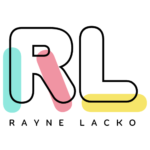I’ll be going on the road for some upcoming blog posts while I endure enjoy time with extended family. Wish me luck.
One of my guest blog hosts also asked me to provide my “author bio.” Uh-oh. I thought I wouldn’t need that until I was published.
But if we think about it, we have to describe ourselves all the time. Everything from our blog’s “about” section to our Twitter profile provides opportunities for others to form an opinion about us. That impression others have of us is our brand.
In other words, now might be the right time to start working on our author bio. Are all our “about” and “info” blurbs working together to create a coherent image? And is that the image we want?
Targeted Information versus Consistency
The details we include in an author bio depend on our target audience. Who will be reading this information? The bio we include in a query letter is different from what we list on Twitter.
Agents want to know about our qualifications: contest wins, writing organization memberships, previous publishing credits, etc. Our Twitter followers don’t.
In addition, our Twitter profile doesn’t have to match our Google+ profile, which doesn’t have to match our Facebook profile, etc., but consistency helps build our online brand. So our voice, our personality, must be consistent across all platforms. If our voice remains the same, we’ll always sound like us and the specific words won’t matter as much.
Author Bio Resources
Some resources I used this past weekend while developing my author bio were:
■Agent Rachelle Gardner talks about professional bios for query letters (includes feedback to some examples in the comments).
■Author Keli Gwyn shares 3 tips for adding pizzazz to the back-of-book bios and shows us the “before” and “after” for her bio.
■Author Roni Loren lists 6 components that made back-of-book bios stand out for her.
After reading those, I knew I wanted to boost my voice in my non-query-letter bios. After all, when it comes to readers, Keli said:
“They want to know one thing. Can I tell an interesting story? … Our bios are our opportunities to sell ourselves as writers of stories readers want to read.”
Does this mean our bios are the ultimate form of “show, don’t tell”? Does showing readers that we can write a good story mean our bios should be a story?
How Crazy Is Too Crazy?
My friend Suzi McGowen struggled with this question recently on her blog when she compared a personality-filled-yet-traditionally-structured bio and an I’m-telling-you-a-story-right-now bio. I like them both, so I don’t know if there’s a right or wrong answer here.
I even went to Twitter (always a source of sanity *cough*) to ask the question. In addition to Suzi weighing in with her examples, I heard from my author friend Susan Bischoff, a fellow Harry Potter fan, and my Tech Guy. In other words, a very diverse group.
Their consensus was that most author bios are boring. Do we really want potential readers’ impression of us to be that we’re dry and boring?
Susan shared an example of an author bio that stuck in her head because it was so fresh and interesting. Check out Claire Legrand’s About page and her Hello paragraph. Seriously, go check. I’ll wait.
Back now? I bet some of us now love this woman just because of her fantastic voice. *raises hand*
As a reader, I don’t care about the level of professionalism in her bio because she’s shown us she can write a story, and that’s what’s important to me. Readers don’t care about memberships, they barely care about even major contest wins, and they care about previous publications only if they want to buy everything we’ve ever written.
Should the Tone of Our Bio Match Our Story?
Claire’s bio is also interesting because she talks about her books being dark, and yet she has a funny bio. I’ve seen advice that if we write dark, serious stories, the tone of our bio should match. And yes, if we’re writing about something completely dark and serious, this tip makes sense, but most of our stories probably have their lighter moments too.
Claire’s tagline at the top of the page (“writer of dark pretty bloody magic things”) warns readers that her stories will have a dark tone overall. So I think her bio works to show her voice and convince us that she can write an entertaining story. And isn’t that what we really want our bio to accomplish?
Recipe for non-Query-Letter Bios
If we look at author bios from a reader’s perspective, the “what to include” recipe is:
■Start with an indication of type of writer (genre, tone, etc.)
■Stir in something to sound relatable (habits, where live, pets, family, etc.)
■Sprinkle with contact information for blog, Twitter, Facebook, Google+, etc. (this also helps with being relatable)
■Add humor and/or voice
■Prepare in a way to show we can tell a story
Additional things we can include when applicable:
■If we’re agented, mention our agent information.
■If we’re debuting, mention our book and release date.
■If we’re multi-published, mention some of our books.
Given all that, I think I’ve come up with a author bio to use for social media and blogs. Don’t believe the rumors though. Contrary to tweets, I did not travel extensively with my circus family, I was not found in a spacecraft, I don’t do lab experiments on reality show participants, and researching a cure for human stupidity is way outside my pay grade.
But I owe a big shout out of thanks to Suzi, Susan, Tech Guy, and wRockRevelation for helping me get into the brainstorming spirit with their crazy suggestions on Twitter last week. *grin* Over the next week, I’ll link to my guest posts so you can see what I did come up with for my bio.
Have you written an author bio yet? Do you use the same one for everything, or do you customize for the audience? Do you have a straight-forward bio, a crazy bio, or something in between? What do you want your bio to say about you? Do you think your current bio does that well?

